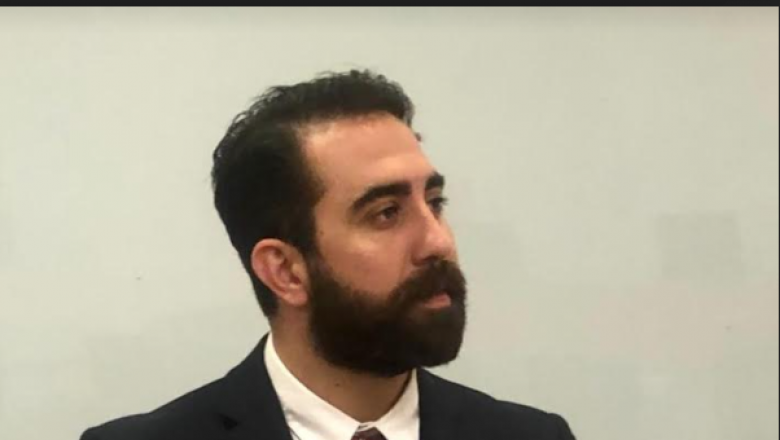More and more studies show that similar fundamental values lead to stronger experience of feeling – greater love, yet greater hate as well when walking up the bumpy road of relationships.
A vivid example of this can we see today, 27 May, in the United Nations Human Rights Council (UNHRC), which will hold a “Special Session” to address “the grave human rights situation in the Occupied Palestinian Territory.”
So what can be foreseen today by anyone who has even the slightest familiarity with how the UNHRC works, let alone with its entrenched anti-Israeli bias?
First, without a doubt, another anti-Israel decision will be passed. And whatever decision is taken or resolution passed during the special session, it will constitute a travesty of justice. Given the history of the Human Rights Council, Israel can have little to no hope of a fair decision. Despite the long lasting support of Cameroon as a member of the council, there are so little this friendly country could do to tilt the scales.
Since its founding in 2006, the UNHRC has demonstrated an obsession with criticizing Israel that is so extreme, it is conspicuous even in the U.N.-verse.
To start with, the Human Rights Council has two items on its permanent agenda that refer to human rights issues in specific countries. The first, Item 7, is reserved solely for discussing supposed violations by Israel. The second, Item 4, deals with the rest of the world.
The upcoming special session continues this pattern of discrimination by singling out Israel for special scrutiny. It will be the 9th one devoted to Israel out of a total of 30 UNHRC special sessions. Again, given the abhorrent situations and unsurmountable challenges faced by so many around the world, is it even remotely rational to devote 30% of special sessions to Israel?
Moreover, all signs indicate that the Human Rights Council will either ignore or obscure the more than 4,000 violations of international humanitarian law committed by Hamas since 10 May. That is the number of indiscriminate rockets, which terrorist organizations in Gaza launched at civilians living in Israeli towns and cities. (Indeed, as Hamas fires from amongst its own civilian population, these attacks can be considered double war crimes.) Apparently, the human rights of Israeli civilians are beyond the scope of the Human Rights Council.
Secondly, the special session will do nothing to truly help the Palestinians. Rather, it will be detrimental to both their present situation and their future prospects, both of which are compromised by Hamas’ rule over the Gaza Strip and its aspirations in the West Bank vis-à-vis the Palestinian Authority.
Hamas is at its core a genocidal terrorist organization, dedicated to Israel’s destruction, that has brought nothing but sorrow and suffering to the Palestinians living under its rule.
In the most recent conflict, Hamas reprised its modus operandi of attacking Israeli civilians, then exploiting the civilians of Gazans as human shields when Israel is forced to react in self-defense, closely followed by blaming Israel for civilian casualties Hamas deliberately created.
Hamas’ depraved treatment of its own population was demonstrated during the recent conflict on a smaller (yet equally telling) scale when Israel twice facilitated the passage to Gaza of convoys of trucks loaded with fuel and humanitarian aid. Both times, the tons of fuel and aid meant for Palestinians were targeted by mortars fired from the Gaza Strip.
By ignoring Hamas’ pattern of behavior, the UNHRC and others who deliberately turn a blind eye all but guarantee that Hamas will repeat its actions in the future to the detriment of the civilian populations of Israel and Gaza.
Thirdly, while much of the international community is striving to maintain calm in a region so recently shaken by Hamas’ unprovoked attack and Israel’s defensive response, the UNHRC shows little concern for regional stability. Not only is it wasting valuable time, money and resources to feed the Palestinians’ insatiable thirst for international censure to delegitimize Israel’s very existence, the results of this special session will likely be interpreted by Hamas as support for its actions. Strengthening a dangerous terrorist organization and its extremist followers throughout the Middle East will deal another blow to those seeking peace and stability.
The only parties that will gain from the Human Rights Council’s special session are haters of Israel and supporters of terrorism, as well as the totalitarian regimes around the world who are free to act with impunity while the UNHRC remains singularly focused on the only true democracy in the Middle East.
In short, the odds are overwhelming that any decision taken during the UNHRC special session will be bad for Israel, bad for the Palestinians, bad for the region and bad for human rights around the world. Does not this logic leave you baffled?
Anan Zen I ענן זן
Deputy Ambassador of Israel to Cameroon




